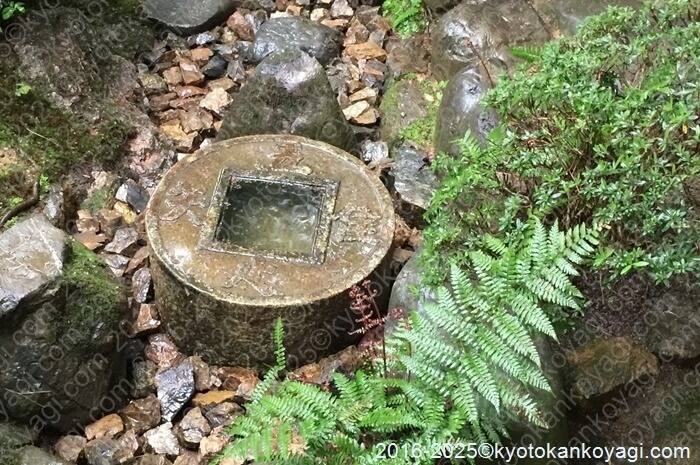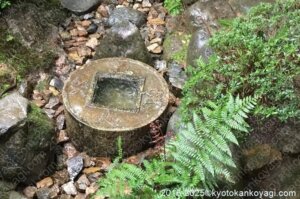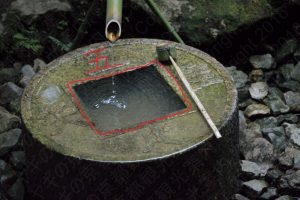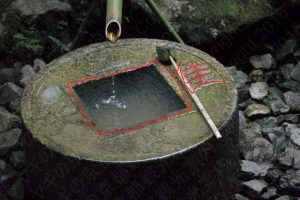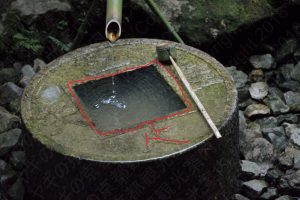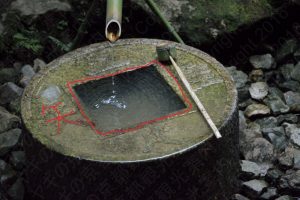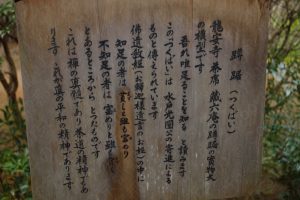Introduction
The Tsukubai of Ryoanji temple gives us a message: Chisoku. It means “I already know I have all I want to have.”
Tsukubai (Washbasin) 蹲
The Rock Garden belongs to a Hojo of Ryoanji temple. In the backyard of the facility, there is a Tsukubai (wash basin). It is a replica of the one Mitsukuni Tokugawa (one of Ieyasu’s grandson) donated in the 17th century.

The authentic one. We can’t see it usually.
The washbasin has a square hole and looks like an old Japanese coin. Around the hole, there are four letters. They make four Kanji with the square individually.
They read in clockwise;
“吾”(ware)
“唯”(tada)
“足”(taru)
“知”(siru).
We can find a sentence “吾唯知足” in the washbasin.
The sentence means “I already know I have all I want to have.”
There is a description near the washbasin. It put it:
This is a replica of a Tsukubai (washbasin) belongs to Zorokuan tea room of Ryoanji. It reads that I already know I have all I want to have. It is believed that Mitsukuni Tokugawa (one of grandsons of Ieyasu Tokugawa) donated it (to Ryoanji). The sentence was inspired by the following sentences in Yuikyogyo sutra: 知足之人雖貧而富 不知足者雖富而貧. This thought is the most important thing of Zen and Sado. It brings us peace.
不知足者雖富而貧 知足之人雖貧而富
Yuikyogyo sutra is a compilation of the Buddha’s last teachings and considered as his will. Let us make a inspection on it.
- Sentences: 不知足者雖富而貧 知足之人雖貧而富 (The ones in the description of Ryoanji are other way around).
- Pronunciation: Fuchisoku no Mono wa Tomeri to Iedomo Mazushi. Chisoku no Hito wa Mazushi to Iedomo Tomeri.
- Meaning: Those who don’t know they have all they want to have are poor though they are rich. Those who know they have all they want to have are rich though they are poor.
Those who know they have all they want to have are rich though they are poor, the sentence means what now we have is precious.
Our desire, or greed, is infinite. With it, we can’t be fulfilled. In Buddhism, desire is a cause of Ku that makes us suffer. If we are content with what we have, i.e., the current state, we can get rid of Ku. This don’t mean to maintain the status quo but means we can find our overlooked happiness in front of us. I’m afraid this explanation is abstract but just think about what I mean. I suppose you’ll find infinite hope. 合掌

